###
Ludwig von Mises
“Many people want the government to protect the consumer. A much more urgent problem is to protect the consumer from the government.” - Milton Friedman
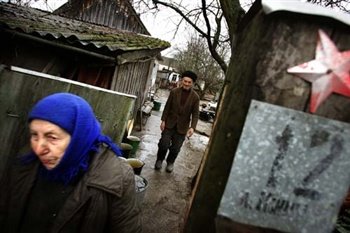
A red star decorates the gates of the home of Mihail Radkevich and Anna Kalita, who live together after their partners died, in the village of Ilinci inside the 30 km (19 miles) exclusion zone around the closed Chernobyl nuclear power plant March 30, 2006.

"I am accused of having said that the [Chinese] Communists used to eat children," he said."But read The Black Book of Communism and you will discover that in the China of Mao, they did not eat children, but had them boiled to fertilise the fields."He tried to calm the furore on Wednesday, telling Italian TV: "It was questionable irony, I admit it, because this joke is questionable. But I did not know how to restrain myself."
Um deles, igualmente conhecido, foi escrito pela mão de Anthony Crosland em 1957, antecipando o que agora se chama socialismo de mercado. Tinha mercados livres, claro, mas mantinha o Estado atento. Um dos seus mas fiéis adeptos e seguidores é o bem conhecido Anthony Giddens – esse mesmo que criou a Terceira Via e mantém Blair no poder há uma década. O mercado actua livremente e o Estado existe para defender um conceito de mercado: os ‘stakeholders’. Blair é um liberal, Giddens é um liberal, como Clinton era um liberal e sim, Sócrates é um liberal que leu Giddens.
Mas em Portugal ser liberal não é isto: paciência. O país conhece os desafios que enfrenta e deve ponderar nas respostas que quer dar. Uma delas, é a resposta errada: defender a liberdade acima da lei ou o interesse próprio sobre o colectivo invocando, por exemplo, as virtudes do livre funcionamento do mercado.
Em Paris, no final da manifestação da semana passada, centenas de agitadores perseguiram polícias, atacaram bombeiros que tentavam extinguir incêndios em viaturas e agrediram transeuntes ou manifestantes para lhe roubarem os telemóveis. Se há alguma coisa verdadeira grande e francesa é a rua: as manifestações, os motins e os incêndios. A França é mesmo inseparável das Luzes. Como costuma dizer um amigo meu: a França é um país de anarquistas e socialistas.
(...)
Infelizmente, as nossas elites (mesmo as mais à direita) são pouco dadas à metafísica e por isso muito devotas dos consensos e bastante tolerantes com motins. Daí a nossa dificuldade em entender a crise e como sair dela. Não sabemos como nos livrarmos do tão propalado consenso sobre a superioridade do nosso modelo social europeu. Muito menos percebemos porque a gestão da crise da civilização obriga à mistura de propostas de consenso com outras fracturantes.
Como sair daqui de forma civilizada? Que tal começar a questionar e a discutir as consequências que derivam de uma Ilustração que insiste em fundar os direitos unicamente no consenso?
Talvez não se possa dizer que a Constituição faz trinta anos no domingo. Depois de aprovada na Assembleia Constituinte a 2 de Abril de 1976, foi tão reformada e reescrita que só por uma ficção de continuidade podemos dizer que é a mesma. No entanto, assim se convencionou, e para tornar a lenda mais credível até se manteve o ”preâmbulo” intacto. Aí continuamos todos, como condenados, a ”caminho de uma sociedade socialista”, embora ”no respeito da vontade do povo português”. Certamente que já não vale a pena notar a contradição. E valerá a pena, fora de uma aula de história do constitucionalismo, falar da nossa lei fundamental? Com as revisões e a integração europeia, a Constituição já não é o tema de ”querela” que foi até 1989. Só Jerónimo de Sousa se preocupa com ela. Mas o nosso constitucionalismo merece alguma reflexão.
(...)
A Constituição de 1976 não era absolutamente má. O seu elenco de direitos e garantias, e a sua organização do poder político, depois de depurada do dirigismo militar, constituíam bases perfeitamente aceitáveis para uma democracia pluralista. Onde a Constituição ficou comprometida foi na tentativa de impor, sobretudo através dos capítulos ”económicos”, um objectivo ideológico comum a uma sociedade diversa e livre. As melhores constituições são as que abrem caminhos que não levam a lado nenhum – mas por onde, precisamente por causa disso, todos podem caminhar em conjunto.
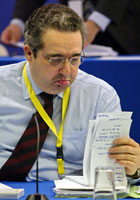

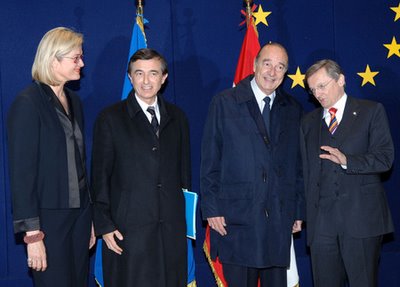

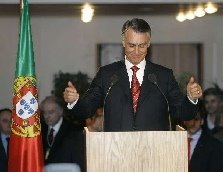
"Much of the social history of the Western world over the past three decades has involved replacing what worked with what sounded good. In area after area - crime, education, housing, race relations - the situation has gotten worse after the bright new theories were put into operation. The amazing thing is that this history of failure and disaster has neither discouraged the social engineers nor discredited them."



French president Jacques Chirac has described comments that his country is pursuing protectionist policies as "completely absurd."
"I have heard here or there, notably in the foreign press, of France being accused of being in «some way protectionist" Chirac was reported saying by French media.
"I would simply like to underline the completely absurd character of this statement," he added.
(...)
"Official figures show that...we have twice as much foreign investment as in Germany and three times more than in Italy."
France is therefore "one of the freest countries in this respect in Europe. So it is something of a contradiction to accuse it of protectionism," he explained.

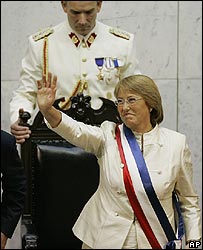
"Former torture victim Michelle Bachelet has been sworn in as Chile's first female president."

"Compreender não significa 'sim, eu compreendo e estou consigo', mas que intelectualmente, somos capazes de perceber por que isto acontece".

I am in favour of the first model, not of the second.(...)


We who live in free market societies believe that growth, prosperity and ultimately human fulfillment, are created from the bottom up, not the government down. Only when the human spirit is allowed to invent and create, only when individuals are given a personal stake in deciding economic policies and benefitting from their success -- only then can societies remain economically alive, dynamic, progressive, and free. Trust the people. This is the one irrefutable lesson of the entire postwar period contradicting the notion that rigid government controls are essential to economic development.
Socialism is the philosophy of failure, the creed of ignorance and the gospel of envy.
We want a society where people are free to make choices, to make mistakes, to be generous and compassionate. This is what we mean by a moral society; not a society where the state is responsible for everything, and no one is responsible for the state.
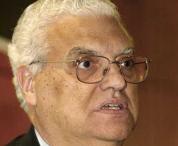

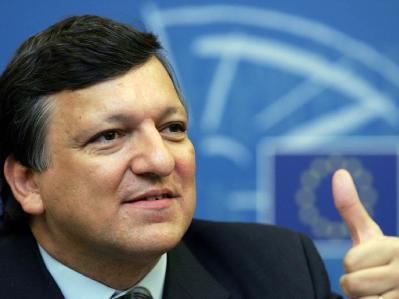
European Commission president Jose Manuel Barroso has urged a "sense of political responsibility on the part of our statesmen" and warned against rising nationalist rhetoric, speaking in reaction to a new wave of protectionism in major EU states.
